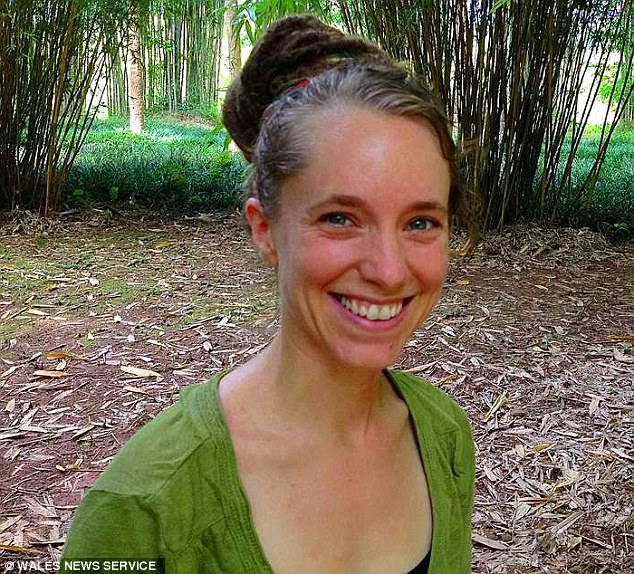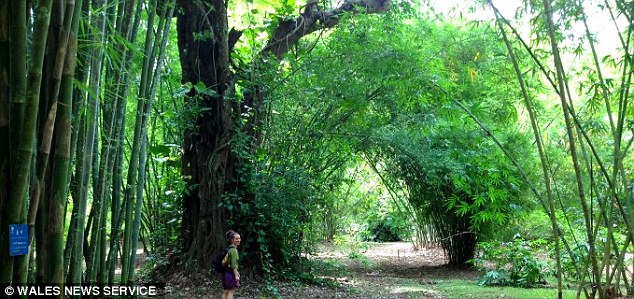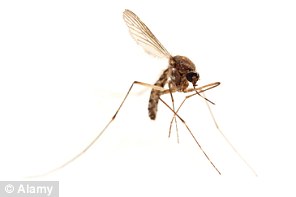Dr Williams has now been transferred to UK from By COREY CHARLTON FOR MAILONLINE
A leading British conservationist is in a coma after being bitten by a mosquito carrying a deadly disease while on a trip to China.
Dr Sophie Williams, 31, is on a life-support machine after contracting Japanese encephalitis - a viral brain disease found in South East Asia and the Far East.
Dr Williams, a lecturer at Bangor University, North Wales, has been in a critical condition in a Bangkok hospital for nearly five weeks and her family describe her condition as 'life threatening'.
Two in three sufferers of the terrifying disease either die or are left with permanent brain damage.

+2
Dr Sophie Williams (pictured in China) is being transferred to a UK hospital after contracting the deadly Japanese encephalitis disease
Doctors in China identified the brain swelling disease but were worried they could not offer Dr Williams specialist care and she was first flown to a hospital in Bangkok
Dr Williams is a leading researcher from Bangor University (pictured) who has given talks on conservation around the world
Dr Williams, who has given talks on conservation around the world, complained of headaches and nausea on July 6 while on a botanical research trip to China with students from the university.
She fell unconscious in a remote area near the Vietnamese border, 400 miles from the Chinese city of Kunming, and was taken to hospital.
Doctors identified the brain swelling disease but were worried they could not offer her specialist care and she was flown to a hospital in Bangkok.
A spokesman for Bangor University said: 'Dr Sophie Williams remains in a critical condition, although we understand that the medical team are hoping to transfer her to a UK hospital in the near future.
'The staff of Xishuangbanna Tropical Botanic Garden as well as the healthcare staff at the hospitals in Xishuangbanna and Bangkok have provided excellent care and support for Sophie and her family.'
ENCEPHALITIS: DEADLY DISEASE CAUSES BRAIN DAMAGE, DEATH
Encephalitis is a mosquito-borne disease.
It’s common in rural areas throughout Southeast Asia, the Pacific islands and the Far East.
The very young and the very old are most at risk because their immune system tends to be weaker.
Most people infected by the Japanese encephalitis virus do not develop any symptoms, or they get only mild, flu-like symptoms. But in people who are seriously infected the virus can also cause swelling inside the brain (encephalitis), leading to increased pressure in the brain.
This can cause permanent brain damage.
The devastating disease can be fatal in around one in three people who develop these serious symptoms.
Dr Williams' parents Mike and Pauline, and her partner Robert, flew out to the Thai capital to be at her bedside.
Mr Williams, 65, of Malton, North Yorkshire, said: 'We saw her come in to hospital. It was very distressing to see her that way.
'We know there's a possibility that she might not make it which is a terrifying thought. This is every parent's worst nightmare.
'We know this is a life-threatening condition but we are just praying Sophie can pull through. She has opened her eyes but she's very tired.
'At the moment she is paralysed down her right side and doctors say part of her brain is damaged. She has no memory.'
Mr Williams, who runs a newsagent, has now returned home but his ex-wife and Dr Williams's partner are still in Thailand.
Dr Williams lives in Bangor where she studied botany before receiving a masters degree from Imperial College London.
She teaches conservation science and has been on other field assignments including in Gambia and Lesotho in Africa, and India.
Up to 68,000 people are diagnosed with Japanese encephalitis every year, mainly in the Far East.
Japanese encephalitis is most common in rural areas throughout South East Asia, the Pacific islands and the Far East, but is very rare in travellers.
The virus is found in pigs and birds, and is passed to mosquitoes that bite the infected animals. It cannot be spread from person to person.
Read more:
http://www.dailymail.co.uk/news/article-3184896/British-conservationist-falls-coma-bitten-MOSQUITO-trip-China.html#ixzz3huJNCgCU 



